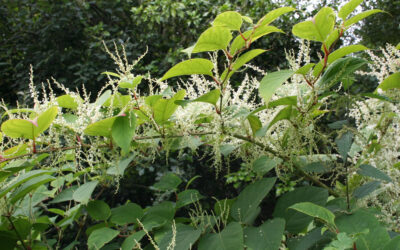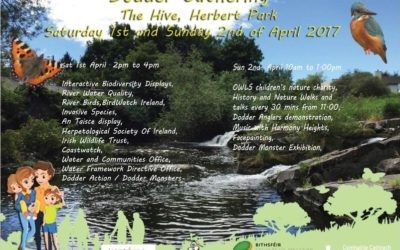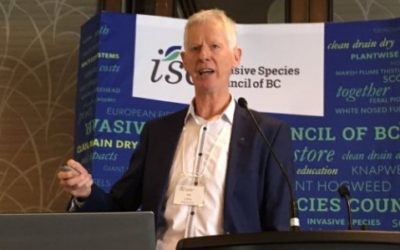Written by Tom Donovan
February 7, 2017
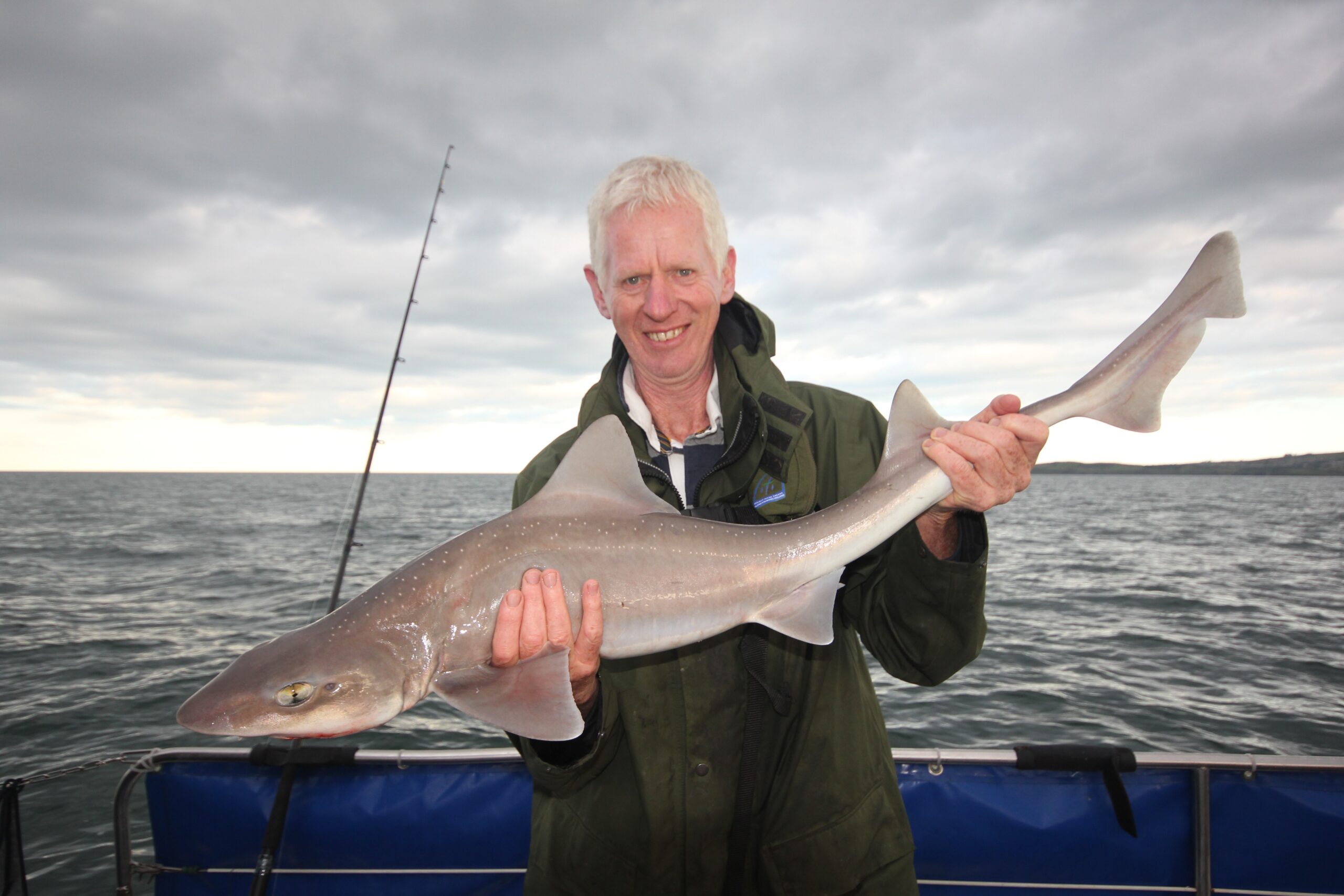
Below are two extracts written by keynote speaker Prof. Joe Caffrey from the Invasive Species Council of British Columbia’s (ISCBC) public forum and AGM program. He also gave several radio interviews
Partnering for Solutions with Industry
Biosecurity as it relates to invasive alien species (IAS) refers to those measures that aim to prevent the introduction and spread of harmful non-native species outside their natural range and to mitigate their impacts. The Convention on Biological Diversity, the EU Regulation on IAS and many other legislative drivers for IAS place the greatest emphasis on prevention of introduction and spread, as this is far more cost-effective and less environmentally damaging than long-term control. The most effective and least expensive measure to reduce new introductions and to slow or stop the spread of IAS is via the promotion and implementation of good biosecurity practice. To be effective, awareness of the issues around IAS must be created at all levels, from government and industry to individuals, and all must be encouraged to buy-in to the proposed solutions and to implement best biosecurity practice. Ireland is among the lead countries in Europe with respect to the development of biosecurity initiatives for industry and stakeholders. These initiatives include the creation of awareness regarding the threat posed by IAS and methods to prevent their introduction and spread, through: targeted (and accredited) training programs, the development of agreed biosecurity protocols for key stakeholder groups, the provision of tried-and-tested biosecurity processes and procedures for use at construction sites, the development of innovative biosecurity products to make the task of cleaning and disinfection more easy, among others. The need for a wide-scale roll-out of biosecurity is being acknowledged at government level and provision for this is being written into national documents, such as the Water Framework Directive (2017-2021) and the National Biodiversity Action Plan. The ultimate goal is that biosecurity will become instinctive and an integral part of one’s recreation or work.
Tackling Invasive Alien Species – Experience from Europe
Search our blog…
“
Joe Caffrey worked has a Senior Research Scientist with Inland Fisheries Ireland (IFI) for 39 years, where he headed up the Invasive Species Section. Joe has project-led a number of multi-million euro national and international research projects and has been directly involved with the development of national and EU legislation relating to invasive species. He has written in excess of 80 peer reviewed scientific papers. In 2015 Joe joined INVAS Biosecurity as a Director, where he is continuing his work with invasive species.
Prof. Joe Caffrey, INVAS Biosecurity (Ireland)
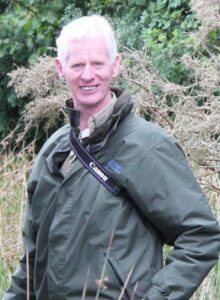
Related Articles
Check Clean Dry Aquatic Campaign
As a water user, you may unknowingly be helping to spread invasive species from one water body to another in equipment, shoes and clothing.
Help stop this happening by following three simple steps when you leave the water:
CHECK your gear, clothing and footwear after leaving the water for mud, aquatic animals, or plant material.
CLEAN everything thoroughly as soon as you can. Pay particular attention to nets, waders, and areas that are damp and hard to inspect. If possible, use hot water (at least 45°C) or a high-pressure spray.
DRY all equipment and clothing until dry for at least 48 hours before using it again as some species can live for many days or weeks in moist conditions.
Out of Control – The vital role of farmers in halting invasive plants
Invasive plants and species pose a massive threat to health, ecosystems, property and crops but so far, there has been little by way of a concerted effort to tackle the scourge of harmful invasive plant species. Introduced from abroad, often for their aesthetic...
The Dodder Gathering
Why not head along to the Dodder gathering this weekend (April 1st and 2nd) at The Hive, Herbert Park. The event is a fun, free and educational way to enjoy the river Dodder and all it has to offer. INVAS Biosecurity will be on hand to answer any questions you may...
Prof. Joe Caffrey speaks to RTE Radio 1 about Japanese Knotweed
Listen to our very own Prof. Joe Caffrey (@INVASBio) talking about the impacts of Japanese Knotweed and other invasive species on Drivetime (@RTERadio1) last week 9th March. Just click on the link below and skip forward to Joes’ interview at 02:20:52. Listen: Prof....


